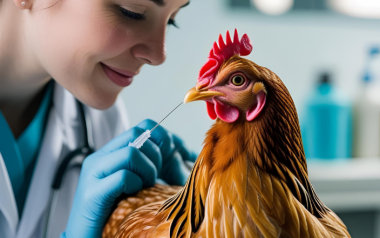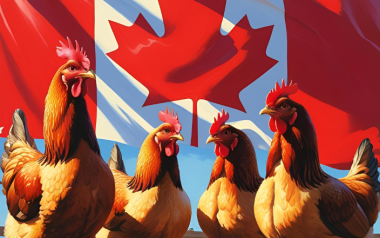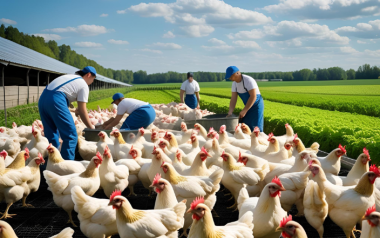Sources: Available upon request.
13 Feb 2024
Impact of Avian Infectious Bronchitis
The presence of Avian Infectious Bronchitis causes a great impact on the economic performance of poultry production systems. It is essential that companies have adequate biosecurity (of personnel and all equipment) and vaccination programs in place to avoid or overcome any challenge from IBV infection.
Avian Infectious Bronchitis is a disease that affects chickens and hens of all ages and has important economic repercussions due to the losses in egg production it causes. It is a worldwide disease that represents a great risk for poultry farms.
What is Avian Infectious Bronchitis?
This disease is caused by a gammacoronavirus that only causes disease in chickens, although the virus has been found in pheasants and turkeys. It mainly affects the respiratory and urogenital tracts; in addition, some strains of the virus can cause kidney damage.
Some of its main serotypes present in the field are:
- Arkansas
- BL-56
- Massachusetts
Main clinical signs:
- General discomfort
- Depression
- Clustering under heat sources
- Wet beds
- Sneezing
- Nasal discharges
- Marked drop in egg production
- Poor egg quality
- Affected internal and external egg quality.
- If the kidneys are affected, it may increase water consumption and cause watery stools.
The severity of the disease depends on the strain of the virus, the age of the bird, the state of its immune system, the diet and the cold stress it may have.
Transmission
The main route of transmission is by aerosols (sneezing), organic material, drinking water, as well as contaminated equipment and surfaces. In addition, vertical transmission (from hen to offspring) has not been proven to be important.
Economic importance of avian infectious bronchitis
This virus affects growth rate in broilers and egg production in layers and breeders. In addition, secondary bacterial infections caused by E. coli or O. rhinotracheale can lead to seizures at the processing plant, particularly when they occur a few weeks prior to slaughter.
Avian Infectious Bronchitis Control
It is essential to have strict biosecurity and hygiene measures in the facilities, as well as an adequate vaccination strategy.
Some biosecurity measures recommended to avoid infection by the Infectious Bronchitis virus are:
- Dry cleaning: remove and eliminate all organic material from the facilities.
- Wet cleaning: wash the houses with high pressure water in order to remove any trace of organic material, the use of detergents is advised.
- Disinfection: Virus can be removed with products containing formaldehyde, chlorine releasing agents and quaternary ammonium.
Vaccination against Avian Infectious Bronchitis
Vaccination is the basis for the adequate and responsible control of Avian Infectious Bronchitis. For this purpose, there are mainly two types of vaccines:
- Live vaccines (attenuated virus): the main routes of administration for this type of vaccines are aerosol and through drinking water.
- Inactivated vaccines (killed virus): usually formulated as emulsions with oily adjuvant.
Conclusions
The presence of Avian Infectious Bronchitis causes a great impact on the economic performance of poultry production systems. It is essential that companies have adequate biosecurity (of personnel and all equipment) and vaccination programs in place to avoid or overcome any challenge from IBV infection.






































